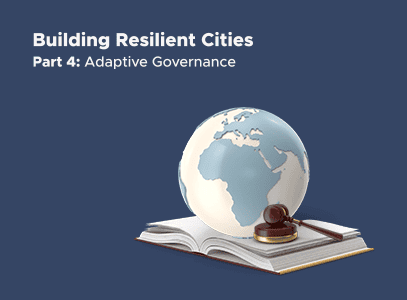What is an Industry Cluster?
Hi everyone,
There are probably only a few hundred people worldwide who can reliably scale a company from 50 people to 500 people in three years and a majority of them (excluding China) probably reside in Silicon Valley. An industry cluster, Silicon Valley is designed to build technology startups through funding sources, talent, and knowledge, all within a relatively small geographic area. Some funding (e.g. YC, Pioneer) targets early startups. This includes investing in them, but more importantly it entails connecting them with a wider network. Other funding focuses on growth stage companies after achieving product market fit. Similarly, while there is a large talent pool for software engineers that exists in San Francisco, crucially there is also a large talent pool for rapidly scaling companies.
This success of the technology industry cluster is self-evident. Silicon Valley has become one of the wealthiest places in the country, producing some of the best-known companies in the world. Silicon Valley succeeds despite absurdly high housing prices, some of the highest taxes in the country, and such poor governance that drug use and defecation in downtown San Francisco is not uncommon.
Essential to the success of Silicon Valley and other industry clusters is embedded knowledge. There is a shared understanding of what a startup is, the steps necessary to build a technology product, what product market fit is, how to hire, and at what stage to make certain decisions. Some of this knowledge is explicitly catalogued, in, for example, blogs, podcasts, and books like ‘High Growth Handbook.’ Other knowledge is implicit and too situational to justify sharing broadly. Instead this implicit knowledge is more often communicated via softer means like mentorships, casual conversations, and a myriad of other ways a specialized network perpetuates itself.
The benefits of agglomeration are hardly unique to Silicon Valley. Los Angeles is an industry cluster focused on movies and TV. New York is a finance industry cluster. Boston is a bio-tech industry cluster. Detroit was a car production industry cluster from the early 20th century until around the 1970’s. Throughout history, industry clusters have emerged with the necessary knowledge and relationships that allow the blossoming of ideas and business within a specific sector. Combining mutual knowledge, relevant supply chains, financing mechanisms, and relationships allow individuals to become far more productive than if they were not embedded in the industry cluster.
The Evolution of Industry Clusters
Most industry clusters evolved organically. The start of Silicon Valley can be traced, somewhat arbitrary, with the Traitorous Eight who left the Shockley Semiconductor Laboratory to found Fairchild Semiconductor. The legacy of the Traitorous Eight was substantial, including breaking off to start your own company early in your career, Eugene Kleiner founding Kleiner Perkins, and Gordon Moore of Moore’s Law fame. There was no broad plan to develop Silicon Valley into an industry cluster producing technology startups. It just happened.
This is not to say that industry clusters cannot be guided. Silicon Valley benefitted from non-competes being unenforced, allowing employees to easily strike out on their own. Silicon Valley also benefitted from the close relationship to Stanford University and the investment of the American defense industry. Specific decisions on both the institutional environment and early investment help turn Silicon Valley into what it is today.
Building an Industry Cluster
Currently there are several charter city efforts. While there is some discussion and idea sharing between entrepreneurs, there is nothing that can be described as an industry cluster, at least not yet. The question is, how can we build, or at least facilitate the development of a network of charter city developers and other stakeholders who benefit from agglomeration and knowledge sharing to supercharge charter city efforts.
Imagine building a technology startup without the supporting Silicon Valley ecosystem. How would you fundraise, who would you hire, how would you scale? Those are the challenges currently facing charter city developers.
We can break down the challenges of building a charter city into ten important components:
- How do you acquire land, especially in a country which might not have clear title?
- How do you fundraise for your initial scouting?
- How do you work with government to pass legislation to allow for the decentralization of authority to the city level?
- How do you design the legal system for a charter city?
- How do you build the administrative system to apply the aforementioned legal system?
- How do you design an urban plan, particularly one that is accessible to lower income residents?
- How do you fundraise the hundreds of millions necessary for the initial infrastructure buildout?
- What industries should you target to move into the city?
- How do you attract the first few companies and thousands of residents to the city to overcome the first mover problem?
- Who do you hire and how do you evaluate their ability to execute?
This is not meant to be an exhaustive list of challenges facing charter city developers, but it gives a taste of the challenge. In an industry cluster, this list of questions would have answers that would be common knowledge. There would be various media, blogs, books, podcasts, all sharing nuanced insights on how to hire land surveyors, what type of power plant to build, how to ensure the local community benefits from the charter city, etc.
Additionally, there would be organizations and individuals specializing in different aspects of charter city development. There would be people to contact for advice, funds specializing in charter city investment, and firms focused on developing and administering the legal framework. Currently, this network, this ecosystem, does not exist for charter cities. This puts a burden on charter city developers and entrepreneurs, as there is no playbook, no ecosystem of people and organizations who can offer advice.
The Importance of Building a Charter City Cluster
I would like to clarify why building an industry cluster for charter cities, instead of letting one emerge, is so important.
First, the longer time-horizon of charter cities increases the importance of coordination. Some industries, technology startups for example, have relatively short time-horizons. A billion-dollar company can be built in five years or less. These relatively short time-horizons allow for a short feedback loop which naturally increases coordination.
Charter cities, on the other hand, take decades to fully mature. The transition from ideation to moving dirt could easily take years. Honduras, the only charter cities legislation in the world, took the better part of a decade to see the first charter city development announced.
The longer time-horizon of charter cities means two things. First, organic growth of the industry cluster would take far longer than coordinated growth. Second, the limited window of rapid urbanization means that the market opportunity for charter cities shrinks every day. That is, attracting people who are already in the process of urbanizing is much easier than attracting residents in a world where the urbanization process has all but stopped. As such, time is of the essence.
The second reason why building a charter city industry cluster is important is the geographic dispersion of charter city development. Because new city projects are dispersed across the globe, without active engagement many of the charter city developments might not otherwise know about each other. Each project is local, forced to independently discover the solutions to the above challenges all on their lonesome. This substantially increases startup costs. A conscious effort is therefore necessary to ensure charter city interaction and learning.
The third reason for the importance of coordinating the charter city industry cluster is that there are many stakeholders who can be engaged to help advance charter cities. These stakeholders have values that charter cities can help advance. By actively engaging them, more resources can be directed towards charter cities. Organizations like the United Nations and the World Bank are committed to improved governance and sustainable urbanization. By enlisting them in the charter cities cause, billions of dollars and a plethora of technical talent can be unleashed.
Building an industry cluster is hard. The charter cities space has numerous stakeholders, many of whom communicate differently – using different jargon and possessing differing mental models of what a charter city actually is. This communication logjam makes it all the more difficult for the various stakeholders to effectively engage. Because these stakeholders come from different worlds and may therefore be unintelligible to one another, it takes time to develop the common knowledge that allows them to quickly learn from each other.
To summarize, many of the above-mentioned challenges already have proven solutions. The problem is therefore that these solutions exist within the cloistered silo of one particular stakeholder and are thus not legible to other stakeholders within the charter cities ecosystem. For example, land acquisition in emerging markets has been done before. Identifying the organizations that have solved those problems and making these solutions easy to understand to the broader ecosystem is key for the proliferation of a charter cities industry cluster.
For charter cities to have a substantial impact, for charter cities to lift tens of millions of people out of poverty, charter cities must become an industry. It is not enough for single operators to attempt to heroically build cities from scratch. There needs to be a networked supply chain of specialized actors who are able to produce dozens of charter cities. Only then will charter cities reach their potential.
As always,
Thank you for reading.
Mark Lutter
Founder and Executive Director, Charter Cities Institute







